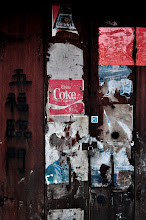Short selling makes comeback in Malaysia after 9-year ban
Biz time online
MALAYSIA began yesterday to allow short selling of a limited group of company shares, lifting a nine-year ban imposed in the wake of the 1997/98 Asian financial crisis.
Malaysia, which had banned short selling to halt speculative sell-offs, will allow the practice for 70 selected stocks to boost foreign interest in the market.
Analysts welcomed the move, saying it showed the Malaysian Government's effort to further develop its stock market.
"Short selling sends a signal to the market that Malaysia doesn't have a restrictive framework and it is up with most developed markets in the ability to short sell," said Jay Moghe, managing director of Opes Prime Asset Management Pte Ltd in Singapore.
"Most institutional investors prefer the ability to hedge in a stock market... it's a key component of hedge fund activity."
Short-sellers borrow shares and sell them in expectation that prices will have declined by the time they need to buy them back and return them to the share lender.
Typically, they are a feature of developed markets, enhancing market liquidity and boosting returns for fund managers who lend out their shares for a fee.
But analysts say they did not expect a high level of short selling in Malaysia yet. Investors have largely been bullish on Asian equity markets after a strong 2006.
"Short selling has not been ignored, but no one wants to take a chance," said Kuala Lumpur-based Kenny Yee, head of research at OSK Research.
"With the market on an uptrend and everyone entering the new year expecting the Malaysian market to touch 1,200-1,300 points, how can you find anyone with the guts to short sell the market?"
The KLSE Composite edged up 1.9 per cent at 1,117.09 points.
Malaysia wanted to resume the practice by the end of September, but put it off due to technical problems. In October, the stock exchange said short selling could begin in January.
Under the new rule, owners of stock will get a 2 per cent return on lending a minimum of 50,000 shares to a central lending pool, with Bursa Malaysia as the counter party. Lenders previously received 1 per cent, analysts said.
Short-sellers may borrow a minimum of 100 shares, paying a 2.2 per cent charge and a RM100 borrowing fee.
They are also required to provide at least 105 per cent collateral on the amount they borrow, which can be in a combination of cash and shares and only on the list of 70 stocks which are listed as acceptable shares.
Despite the change, some investors said they still feared a repeat of 1998, when Malaysia imposed capital controls to shield the economy from the effects of the Asian financial crisis.
"There would be two broad things. One is the legacy of 1998 when Malaysia did impose capital controls and it can do so at any time. That is a legacy financial players don't forget," said a Singapore-based hedge fund manager who declined to be identified.
"Secondly, Malaysia is not a market with a large volume. I think the flood of global money coming into this part of the world would target Singapore before Malaysia. The basic summary is - yes a positive move, but don't expect to see an enormous flood going in."
Among the 70 permitted stocks available for short selling are low-cost carrier AirAsia Bhd, which rose 7.3 per cent to close at RM1.62 yesterday on an anticipated global alliance.
They also include smallest local mobile phone operator DiGI.Com Bhd, whose shares have more than doubled to RM16 in 12 months and gaming firm Genting, whose stock has gained 64 per cent to RM34.50 in the same period. - Reuters

No comments:
Post a Comment